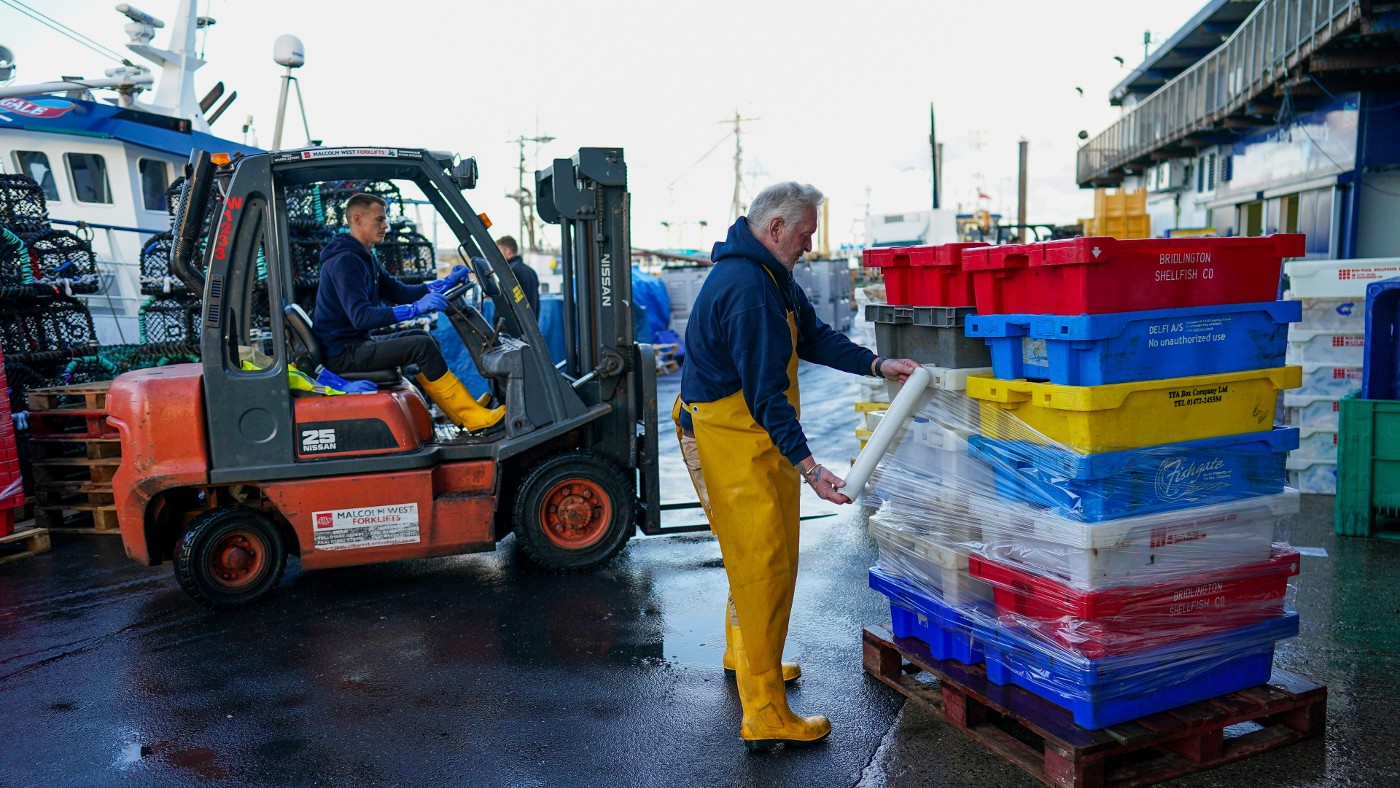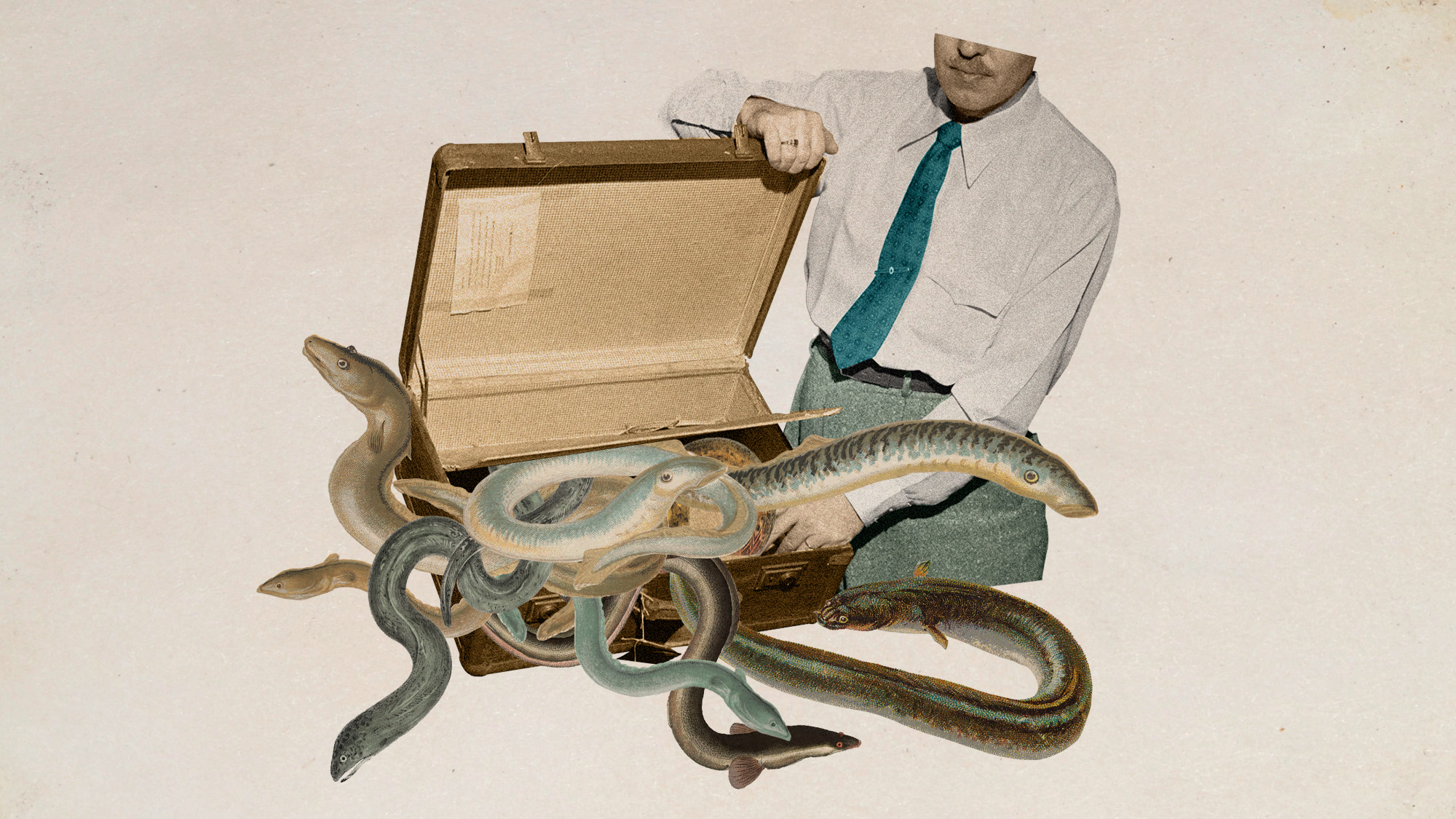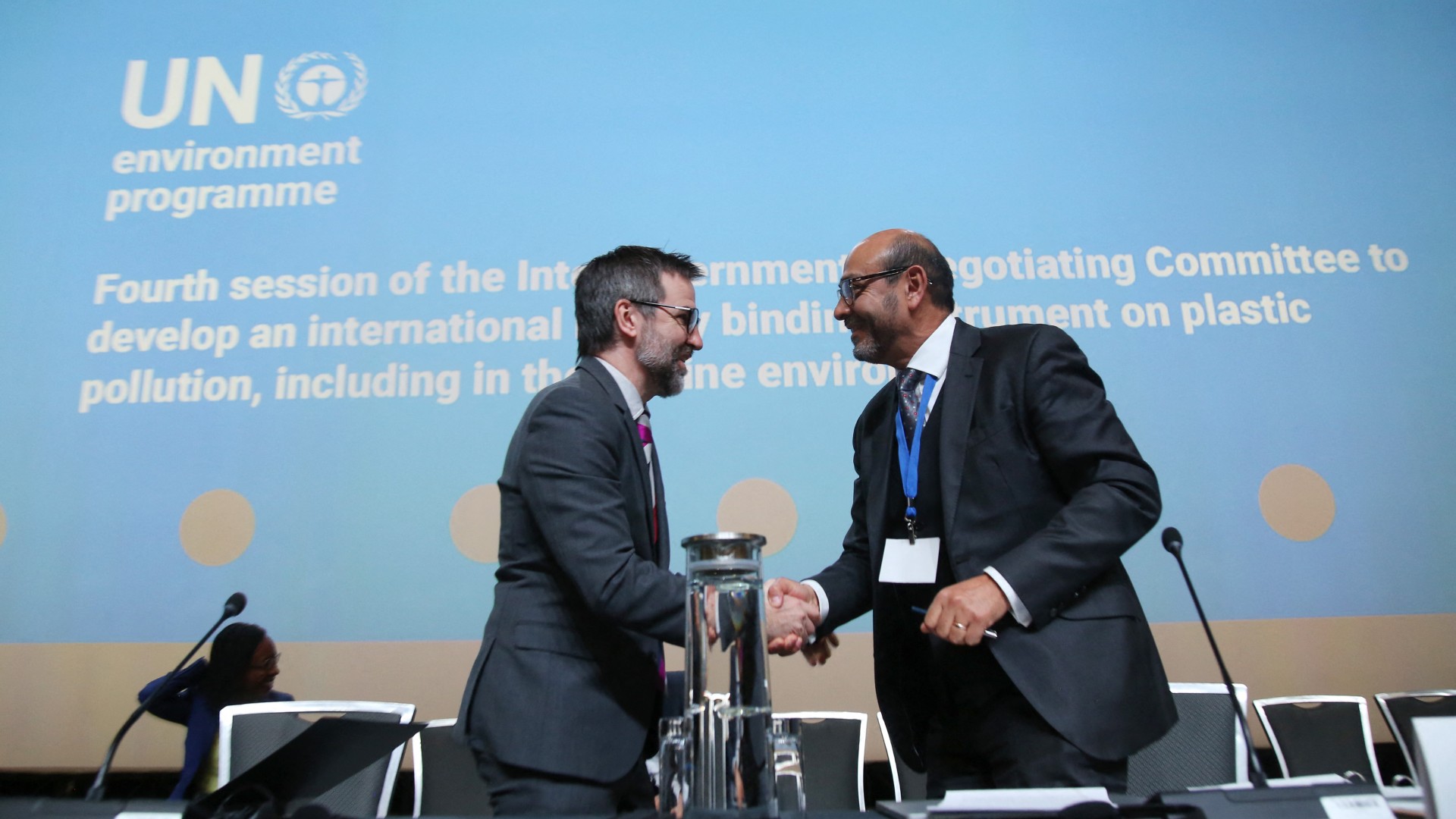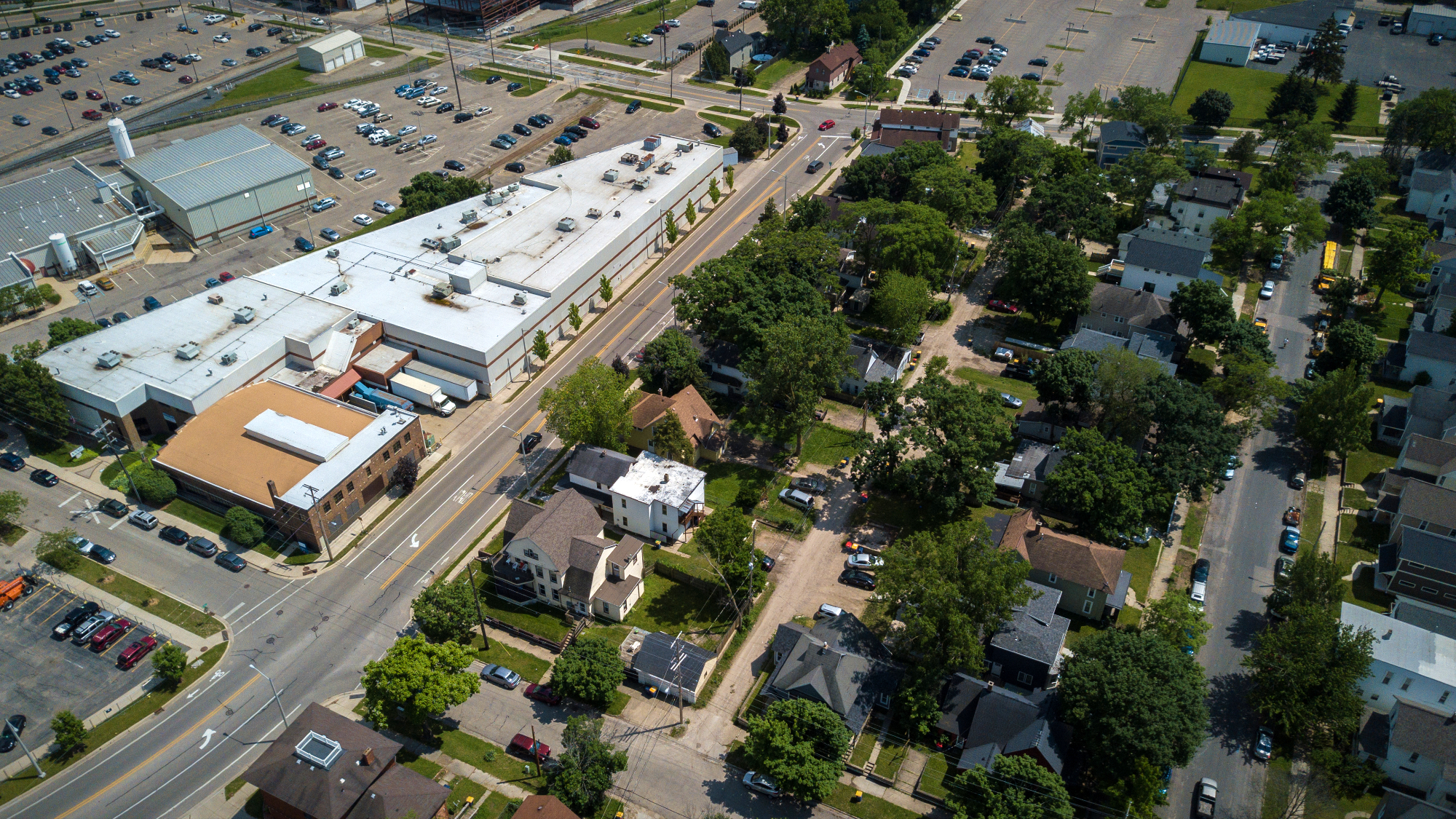Is the freeport to blame for loss of marine life in Teesside?
Bitter row has broken out between the government and fishermen over mass die-off of crabs and lobsters

A free daily email with the biggest news stories of the day – and the best features from TheWeek.com
You are now subscribed
Your newsletter sign-up was successful
The deaths of thousands of crabs on the beaches of Teesside and North Yorkshire has created bitter divisions between the fishing industry and the government.
With so much disagreement over the cause, the issue has “set off a row that shows little sign of dying off”, said the BBC. It has even raised doubts over “the future of a key part of the government’s levelling up agenda”.
What has happened?
In October 2021, crabs and lobsters began washing up dead on the beaches in the region. The beaches were “piled with hundreds of thousands of dead and dying crabs and lobster”, said The Times, with “some still twitching in agony”.
The Week
Escape your echo chamber. Get the facts behind the news, plus analysis from multiple perspectives.

Sign up for The Week's Free Newsletters
From our morning news briefing to a weekly Good News Newsletter, get the best of The Week delivered directly to your inbox.
From our morning news briefing to a weekly Good News Newsletter, get the best of The Week delivered directly to your inbox.
With their catches plummeting, the fishing industry has called for financial support from the government to “save” the North East fleet in the face of the huge losses.
Adrian Noble, who has been catching crabs and lobsters for 40 years, told the BBC that the situation was “the death knell for the North East coast” and warned that the industry would “go bankrupt”.
The effects of the die-off were also “cascading up the food chain”, said The Guardian, with seal rescue volunteers reporting “emaciated seal pups”, which would normally scavenge seabeds for crustaceans, washing ashore.
What does the government say is the cause?
An investigation by the Department for Environment, Food and Rural Affairs (Defra) found no single, consistent factor behind the deaths. However, it said the “most likely cause” was a “naturally occurring algal bloom”.
A free daily email with the biggest news stories of the day – and the best features from TheWeek.com
The report also insisted that it was unlikely that chemical pollution had caused the deaths, despite the fact that the dead crabs contained extremely high levels of a toxic chemical, pyridine.
What does the fishing industry say is the cause?
The government’s finding prompted “months of fury” from the fishing industry across Teesside and North Yorkshire, which believes that dredging on the River Tees had disturbed pyridine, a chemical once used in steel-making, said ITV News.
It points to the findings of independent researchers that industrial toxins were the “most likely” cause of the mass die-off. Researchers said chemicals released by dredging operations linked to the development of the government’s flagship freeport at the mouth of the Tees were responsible for the deaths.
The freeport is a key part of the government’s levelling-up agenda. Therefore, government scientists, ministers, and the Tees Valley mayor, Ben Houchen, have stuck to their guns insisting that the algal bloom was still the probable cause.
Simon Clarke, a local Conservative MP and the former levelling-up secretary, went on the attack. Writing in The Times, he dismissed the concerns of the fishing industry, Labour and Green politicians, describing them as an “anti-growth coalition” who couldn’t accept that Conservatives are “restoring pride, identity and purpose” to the area.
What will happen next?
In the face of widespread derision of the government’s original findings, Thérèse Coffey, the environment secretary, commissioned an independent panel of scientists who are examining whether the deaths are down to nature or industrial poison.
However, wrote Jenni Russell in The Times, “there has been no openness” from the panel, and Defra “refused to tell me who was on it, its remit” and “who it was hearing from”. The panel could report as soon as next week.
A Labour councillor has “grilled” the Tees Valley Combined Authority (TVCA) boss about what his plan B will be “if pyridine is linked to the mass crustacean die-off”, reported Teesside Live.
“What would happen if the report comes out next week and directly links the crustacean deaths to pyridine,” asked Steve Nelson, who sits on Stockton Council. “I am just wondering what happens next in that eventuality. It’s quite possible the expert panel links the deaths.”
In response, TVCA chief executive Julie Gilhespie said: “If the government guidance says we shouldn’t be doing it, we won’t do it.”
-
 What is the endgame in the DHS shutdown?
What is the endgame in the DHS shutdown?Today’s Big Question Democrats want to rein in ICE’s immigration crackdown
-
 ‘Poor time management isn’t just an inconvenience’
‘Poor time management isn’t just an inconvenience’Instant Opinion Opinion, comment and editorials of the day
-
 Bad Bunny’s Super Bowl: A win for unity
Bad Bunny’s Super Bowl: A win for unityFeature The global superstar's halftime show was a celebration for everyone to enjoy
-
 The environmental cost of GLP-1s
The environmental cost of GLP-1sThe explainer Producing the drugs is a dirty process
-
 ‘Like a gas chamber’: the air pollution throttling Delhi
‘Like a gas chamber’: the air pollution throttling DelhiUnder The Radar Indian capital has tried cloud seeding to address the crisis, which has seen schools closed and outdoor events suspended
-
 Eel-egal trade: the world’s most lucrative wildlife crime?
Eel-egal trade: the world’s most lucrative wildlife crime?Under the Radar Trafficking of juvenile ‘glass’ eels from Europe to Asia generates up to €3bn a year but the species is on the brink of extinction
-
 Why is the world so divided over plastics?
Why is the world so divided over plastics?Today's Big Question UN negotiations on first global plastic treaty are at stake, as fossil fuel companies, petrostates and plastic industry work to resist a legal cap on production
-
 Anti-anxiety drug has a not-too-surprising effect on fish
Anti-anxiety drug has a not-too-surprising effect on fishUnder the radar The fish act bolder and take more risks
-
 Oysters from New York's past could shore up its future
Oysters from New York's past could shore up its futureUnder the Radar Project aims to seed a billion oysters in the city's waterways to improve water quality, fight coastal erosion and protect against storm surges
-
 Ottawa climate talks: can global plastic problem be solved?
Ottawa climate talks: can global plastic problem be solved?In the Spotlight Nations aim to draft world's first treaty on plastic pollution, but resistance from oil- and gas-producing countries could limit scope
-
 EPA limits carcinogenic emissions at 218 US plants
EPA limits carcinogenic emissions at 218 US plantsSpeed Read The new rule aims to reduce cancer-causing air pollution in areas like Louisiana's 'Cancer Alley'